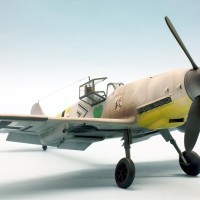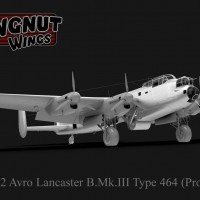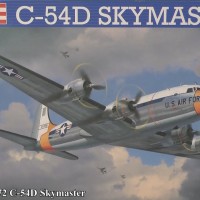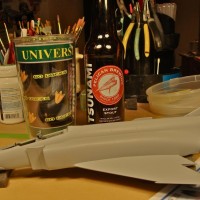Hanriot HD.1, Lukgraph, 1:32, Tenente Antonio Bogliolo, Squadrilia 81a, 2 victories
This is my first resin build in this scale. The kit is very finely and detailed, a joy to build. Only the installation of the upper wing was somewhat more demanding. You also had to adjust the length of the hull struts. Painted by Revell, fishing lines again
fishing line.
The Hanriot HD.1 is a French World War I single-seat fighter aircraft. Rejected for service with French squadrons in favor of the SPAD S.VII, the type was supplied to the Aviation Militaire Belge (Belgian Air Force) and the Corpo Aeronautico Militare (Air Force Corps) of the Royal Italian Army, with both of these units. proved to be very successful. Out of a total of about 1,200 examples produced, 831 were produced under license by Italian companies.
Powered by its 110 hp (82 kW) Le Rhone rotary engine, it was not particularly fast, but it was very maneuverable and pilots liked it as a safe and pleasant aircraft. To maintain competitive climb and altitude performance, the usual practice was to limit armament to one synchronized Vickers machine gun, although there was provision for a second gun and one was occasionally fitted. On French-made aircraft, the gun was mounted on the sides of the cockpit and was accessible to the pilot without their stocks being in front of his face in the event of a crash – an unusual but welcome feature, even if its origins lie in the form of the cockpit struts. The Italian-made versions mounted one machine gun centrally. The type was also produced by the Nieuport-Macchi firm of Varese, Italy, which built almost 900 HD.1s between 1917 and 1919; more than the parent company.
The bulk of early production was supplied to the Belgians, who notoriously had to make do with Allied castings. With the Belgian fighter squadrons, the HD.1 proved surprisingly successful and the type remained the standard Belgian fighter for the rest of the war. Willy Coppens, Belgium's top war ace, was the most successful pilot of the HD.1. At least one of his machines was experimentally fitted with a 0.43 in (11 mm) Vickers machine gun for use in bursting balloons, at which Coppens excelled. Most of his victories were with balloons, and many were won while flying HD.1s.
The type was also supplied in small numbers to the Italians, who produced it in large quantities and replaced Nieuports and SPADs with it. The type was considered (by the Italians) to be a better all-round fighter than even the SPAD S.XIII and became the standard Italian fighter, arming 16 of the 18 operational Italian fighter squadrons by November 1918. Surplus Italian-made Hanriots were used by several post-war countries, including Switzerland.
Antonio "Antonino" Bogliolo spent his entire career in the 81a Squadriglia, ending the war with two confirmed victories. His famous plane in this photo is a french-built Hanriot No.562, with the usual offset Vickers and red/green section only under lower wings.














A great build, and love those markings - very original. Nicely done!
Thank you Greg.
What a beautiful build, Milan @milantesar. The rigging is amazing and the scheme with the stars is spectacular.
Thank you Felix.
That’s a beauty, Milan!
Thank you John.
Sweet looking build, Milan
Thank you Gary.
Very nice - good work and a great result.
Thank you Tom.
A great looking Hanriot Milan, your usual high standard of build and research.
Thank you Ian.
Excellent HD.1, Milan!
Thank you Spiros.
A really nice result, Milan @milantesar
Thank you John.
Very nice Milan!
Thank you Erik.
A lovely colourful build Milan. It certainly stands out.
Thank you Guy.
Superb build - a real beauty!
Thank you Chas.
Lovely Hanriot!
Thank you Robert.
Nice work, Milan. Lukgraph produce some very interesting subjects, and you've finished this one very nicely indeed... ;-).
Thank you Paul.
Great job on that cool little beastie. Love the stars.
Thank you Bill.